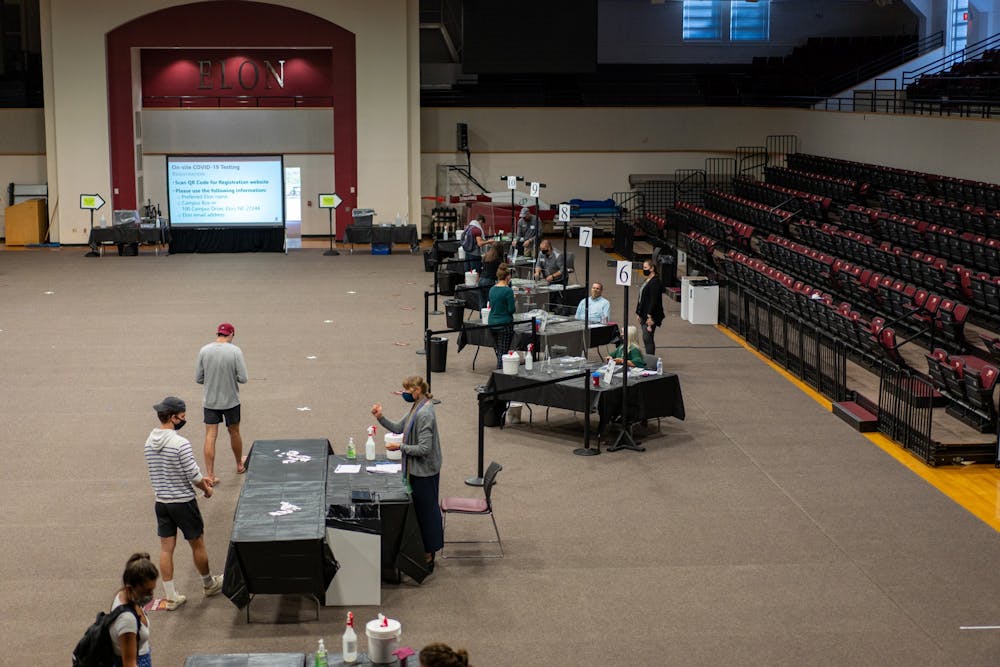With a new semester comes new COVID-19 protocols at Elon University. All students will now be tested weekly for the coronavirus, a change from the fall semester that began over Winter Term.
For students like Freshman Christina Alescio weekly testing makes her feel more secure on campus.
“It’s quick and organized,” Alescio said. “I find it more convenient and I don’t feel stressed going to get tested, because I know that everyone has to do it.”
Last semester, Elon used a random testing model with PCR tests. Now, the university has switched to rapid antigen tests. Students who receive a positive antigen test go into quarantine and take a follow-up PCR test to confirm the results.
Since the beginning of weekly testing in early January, weekly cases at Elon have fallen from 1.37% of students testing positive to just 0.42% of students testing positive, according to the Elon Covid-19 Dashboard.
Elon’s shift to weekly testing also comes while coronavirus cases are decreasing at the county level after a spike in December. Alamance County’s number of daily cases has decreased from 152 cases on Jan. 20 to only 65 cases on Feb. 1, a more than 50% decrease.
“Last semester I was upset that there was not more testing… it was random, but many people I know either consistently got tested or barely did,” sophomore Juliana Schiano said. “With such a social and fast spreading virus I think having weekly testing is much safer.”
For some students, weekly testing has reduced the stress that comes with being on campus during a pandemic.
“Weekly testing makes me feel safer,” Junior Mike Mahoney said. “It’s good to know that the school is testing everybody, because they can know right away if someone has COVID.”
Throughout Winter Term, when weekly testing began, Elon’s COVID-19 Alert Levels have remained steadily at Level 1, which is the lowest alert level and places the smallest number of restrictions on students. A variety of factors are used to determine Elon’s Alert Level, including number of current cases and number of students in quarantine. As of Feb. 6, the weekly average number of COVID-19 cases per day is 5 cases, and the average number of isolated students is 173.
“I’m just glad to be getting tested at all,” Alescio said. “I’d rather get quarantined for a few days because of a false positive than not know that I have it and spread it to my friends.”
Since the university is back at the lowest alert level, more activity such as the ability to have guests over and indoor dining have resumed. For freshman Drew Reuschlein, he hopes clubs will be able to do more this semester.
“I think it’s a good sign that we’ve stayed in Level-1 for the entire time we’ve been back,” Reuschlein said. “Hopefully more and more clubs start meeting in person and once the vaccine comes, we can transition to a more normal college experience.”


